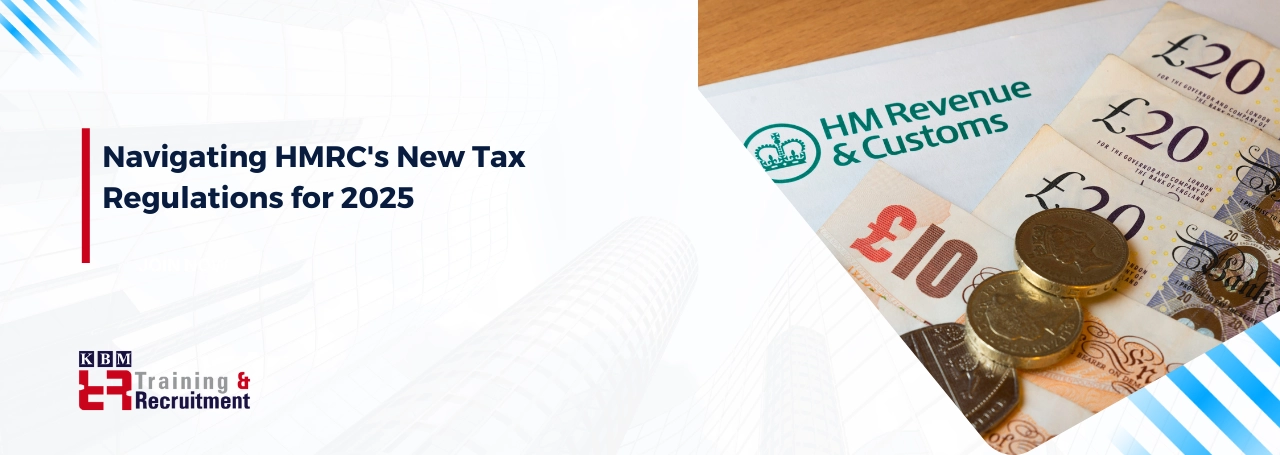The UK tax environment is transforming once more. HMRC has announced a fresh batch of tax rules for 2025. They impact both individuals and businesses. Being informed is more vital than ever before. If you get the news early, you can prepare in advance and sidestep fines. Let's take a deeper look at what's new and how you can get ahead.
Personal tax changes
HMRC has revised several personal tax rules for 2025. The personal allowance remains frozen. This means more people may end up paying tax, even if their income hasn't increased. The higher rate threshold also stays the same. As wages grow, more earners move into the higher tax bracket.
Another big change is in dividend taxation. The tax-free dividend allowance has dropped again. Investors now pay more tax on their dividend income. It's wise to review your investments and speak to a tax adviser. Small changes in the tax system can have a big effect on your income.
National Insurance updates
National Insurance Contributions (NICs) have also changed. Employees will see a slight reduction in their NIC rate. This gives some relief during a time of high living costs. Self-employed people get a bigger benefit. Class 2 NICs are now scrapped for most of them.
Class 4 NIC thresholds have shifted as well. More low-income earners now avoid these charges. These changes aim to support freelancers and small business owners. Still, it's good to check your records and make sure you're paying the right amount.
Business tax adjustments
Business owners face a mix of updates. The Corporation Tax rate stays at 25% for companies with profits over £250,000. However, marginal relief applies to those with profits between £50,000 and £250,000. This relief reduces the tax burden on smaller firms.
HMRC also changed rules around capital allowances. The full expensing rule remains in place for plant and machinery investments. This means businesses can deduct the cost of equipment from their profits immediately. It's a strong incentive to invest in growth.
VAT changes
Value Added Tax (VAT) rules now apply differently to digital services. UK-based businesses selling digital products abroad must check their VAT obligations. If you sell to the EU, you may need to register for VAT in each country. This is due to new rules that stop the one-stop-shop approach.
Domestic VAT thresholds have not changed. If your turnover exceeds £85,000, you still need to register for VAT. However, HMRC now carries out more digital checks. It is important to maintain clean records and stay compliant.
Making Tax digital progress
HMRC continues to expand its Making Tax Digital (MTD) programme. From April 2025, more taxpayers must use digital systems to submit returns. This includes landlords and sole traders earning over £30,000. You must use approved software to report your income and expenses.
MTD aims to reduce errors and make tax more transparent. But it also means you need to stay organised throughout the year. Leaving things to the last minute will only create stress. Start using digital tools early to get familiar with them.
Penalties and compliance
HMRC has introduced a new penalty system. It is fairer and more focused on regular non-compliance. If you miss a deadline, you will get points. When you reach a set number of points, you will receive a penalty. This system works like driving licence points.
Interest charges will be incurred if you fail to pay your tax on time. These charges are cumulative. So it's crucial to organise your payments in advance. Set reminders and make use of payment plans if necessary. Disregarding letters from HMRC never helps. Always reply and take advice if you are not sure.
Preparing for the changes
Now is the time to prepare. Review your financial records. Talk to your accountant. Learn how the changes affect your income or business. Do not wait for the deadline to act.
Technology can help you stay compliant. Many apps now connect with HMRC systems. Use these tools to monitor your expenses, income, and taxes in real time.
Staying informed gives you control. Understanding the new tax regulations puts you in a stronger position. You can make better decisions and avoid stress.
Final thoughts
Tax regulations will continue to change. The 2025 reforms demonstrate the UK's drive towards digital, contemporary systems. They also seek to bring in more equitable taxes. But they also introduce new taxpayer obligations.
Take the time to understand what's new. Get expert advice if you need it. Stay organised and use digital tools. These small steps will help you manage your taxes with confidence in 2025.






















